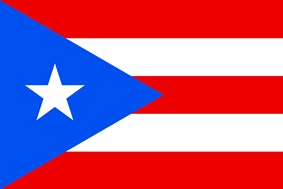
Puerto Rico holds $72 billion in debt, an amount that Governor Alejandro Garcia Padilla said was “not payable” in June and is more than the debt of all U.S. states but California and New York. Compounding the commonwealth’s economic problems, for the past decade the population has steadily declined as residents emigrate to seek better lives for themselves elsewhere.
In some ways, the situation is comparable to Greece. Both Greece and Puerto Rico are small, self-governing entities largely dependent on the policies of the European Union and the United States. As an independent nation, Greece has more leverage than Puerto Rico. Although it is a far from ideal prospect because it would most likely result in the nation being forced to leave the EU, Greece could file for bankruptcy and restructure its debts. Puerto Rico, on the other hand, has no established bankruptcy procedure.
Hillary Clinton called on Congress to pass a bill that would allow Puerto Rico municipalities to file for Chapter 9 bankruptcy, the same process Detroit went through, but so far, no action has been taken on that front. Nor can Puerto Rico turn to the International Monetary Fund for respite, because it is not a sovereign nation.
As Puerto Rico’s economy deteriorated, American hedge funds swooped in to buy Puerto Rican bonds. The funds stand to profit from the bonds if they can sell them to other investors, but for that plan to become a reality, Puerto Rico has to patch up its economy. Currently, a group of 34 hedge funds, called the Ad Hoc Group of Puerto Rico, holds $5.2 billion of Puerto Rican bonds. Ad Hoc commissioned the report, called For Puerto Rico, There is a Better Way.
Former IMF economists Claudio Loser, Jose Fajgenbaum, and Jorge Guzmán authored the report, which called on the commonwealth to adopt more stringent austerity measures, such as raising taxes, selling public buildings, and cutting education spending. A representative from the Centennial Group said that the authors could not be reached for further comment.
Puerto Rico is already taking steps to reduce its spending on education. In May, Padilla proposed cutting the University of Puerto Rico budget by $166 million, an announcement that sparked student and teacher protests in the streets of San Juan.
Responding to long-term decline in population, Puerto Rico shut down 160 elementary schools over the past two years. Puerto Rico’s secretary of education, Rafael Roman, said in May that the department served 423,000 students in 2013, but that number is expected to drop to 317,000 by 2020.
Staff writer Catherine Morris can be reached at [email protected].



















